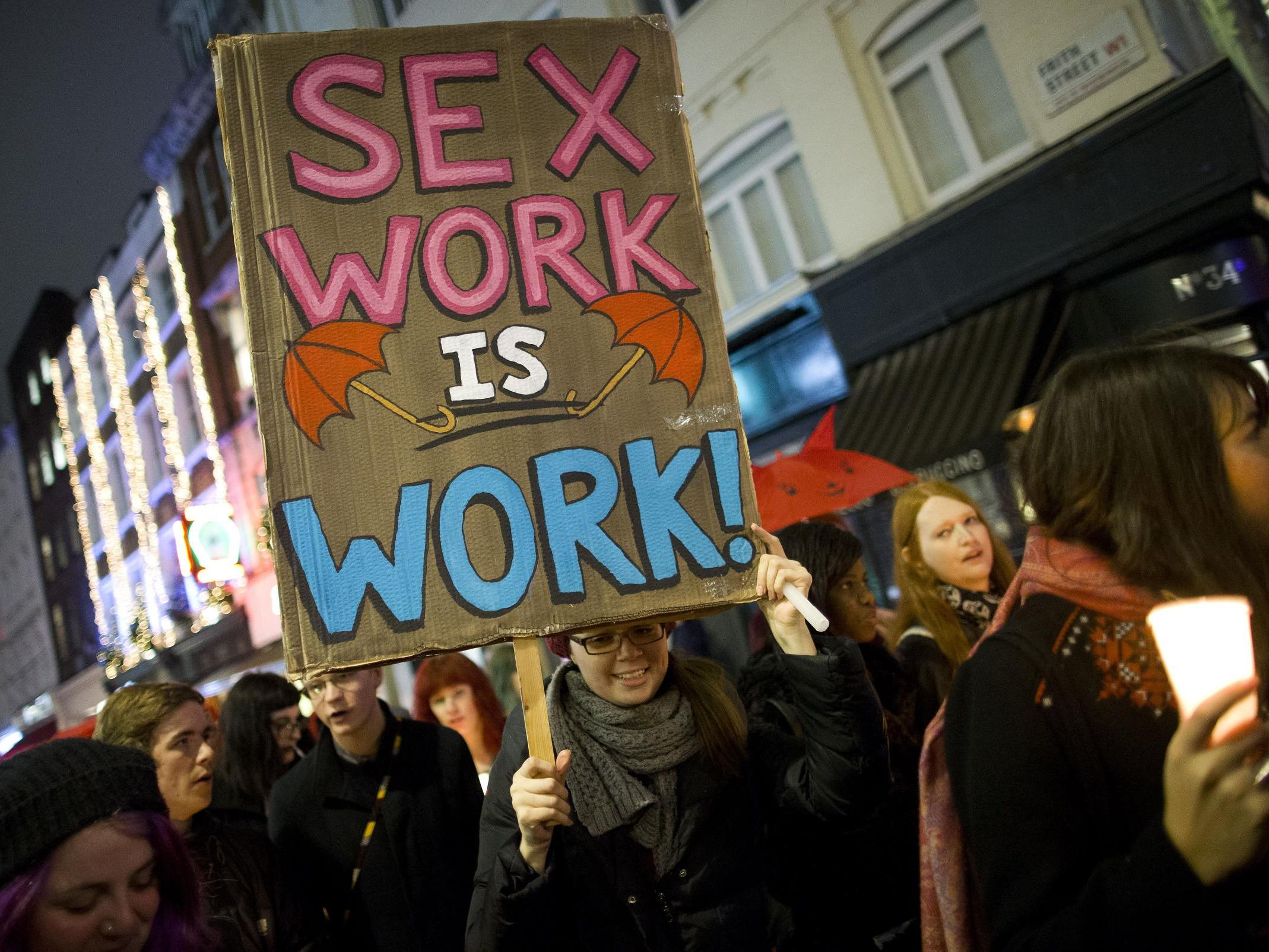'All of the stuff that makes me safer is illegal': Austerity pushing women into sex work and criminalisation endangering them, major report finds
'I was in a desperate financial situation, no parents to support me and about to become homeless. As I am disabled and was in full-time education, my opportunities for work were, and remain, limited,' says woman

Austerity is pushing women into prostitution and the criminalisation of the industry is putting them in danger, according to the most wide-ranging study ever into British sex work.
Female sex workers directly linked experiences of physical and sexual violence to laws which criminalise the practice in the UK, the research, which was published and commissioned by the Home Office, found.
Many said they were not able to report such crimes to the police due to fears of prosecution and the stigma associated with the work.
Police raids on premises are a “constant threat”, they told researchers at the University of Bristol, who produced the report.
“The combination of financial need and the legal and regulatory environment were identified as a ‘perfect cocktail of conditions’ for undermining safety,” the report states.
It found the majority of people carrying out sex work were doing it to make ends meet.
This is the result of “caring responsibilities, physical and mental health issues, lack of access to social security benefits and support services or workplace discrimination”, researchers said after surveying over 500 people who are currently involved or previously worked in the sex industry.
They found sex workers wanted to work together “as a way of enhancing safety, of sharing tips, saving on costs, of having a laugh and ‘off-loading’ emotionally between clients” but this is prohibited by law.
It is not illegal for individuals to buy or sell sex from each other in the UK but soliciting and sex workers banding together as a group are illegal.
“The law is impossible to navigate because all of the stuff that makes me safer is illegal,” one woman told researchers.
Another added: “I started in 2014. I was in a desperate financial situation, no parents to support me and about to become homeless. As I am disabled and was in full-time education, my opportunities for work were, and remain, limited. Due to my immigration status (not meeting the habitual residency test), I don’t qualify for benefits, so despite living in the UK since infancy, having had all of my education here, and never having lived elsewhere, I wasn’t eligible for support from the state.”
Niki Adams, a spokesperson for the English Collective of Prostitutes (ECP), which presented evidence from its national network of sex workers who work both on the street and inside premises, said: “We have seen a massive increase in people coming to us for help because they have gone into prostitution for the first time and they need advice and support.
“A big proportion of women are single mothers. It is also a lot of women in their twenties. Universal Credit has a massive impact on people coming to us. Having to wait five weeks before you get any benefits under Universal Credit is forcing women back into prostitution or into starting prostitution for the first time. People have been left with no money. This is particularly devastating for mothers – how do you get the money for the next meal for your children?
“This report shows sex workers are largely women struggling to get by in very difficult circumstances and goes against the stereotype of the poor victim and the happy worker. We see a lot of women who have suffered violence at the hands of male clients or male thugs who break into the premises where they are working. They are scared of reporting to the police due to the fear of going to prison.”
Ms Adams said a large proportion of sex workers are also working as public sector workers – in roles like nursing or teaching.
The campaigner applauded the report and thanked researchers for listening to the perspectives of sex workers but argued it fell short in not making any recommendations.
Ms Adams said “all the evidence” points towards decriminalisation being needed immediately – saying much of the public is in favour of this but arguing politicians are “a bit behind”.
The government needs to bring in legislation to decriminalise sex workers as recommended by the Home Affairs Committee which initiated the latest research, she added.
Researchers said the latest study, which also looks at the experience of transgender women and men that are selling sex, will be analysed closely by the government.
The Sex Worker Advocacy and Resistance Movement (SWARM), which wants sex work to be fully decriminalised, welcomed the report. The sex-worker led organisation argues many sex workers would leave the industry if they were able to access sufficient welfare benefits, affordable housing, free education and healthcare – especially trans healthcare.
A member of the group, who chose to remain anonymous, said: “Whipped up panic and more police crackdowns just make our lives even harder. If the government really cared about us, they would prioritise our needs and safety. Stop treating us like criminals – sex workers need rights”.
A spokesperson for the Home Office said: “The government is committed to tackling the harms linked to prostitution. This report provides a picture of one of the most complex and rapidly changing issues in the country. It shows that traditional perceptions of prostitution are out-dated and cannot be used to understand the issue.”
Subscribe to Independent Premium to bookmark this article
Want to bookmark your favourite articles and stories to read or reference later? Start your Independent Premium subscription today.

Join our commenting forum
Join thought-provoking conversations, follow other Independent readers and see their replies